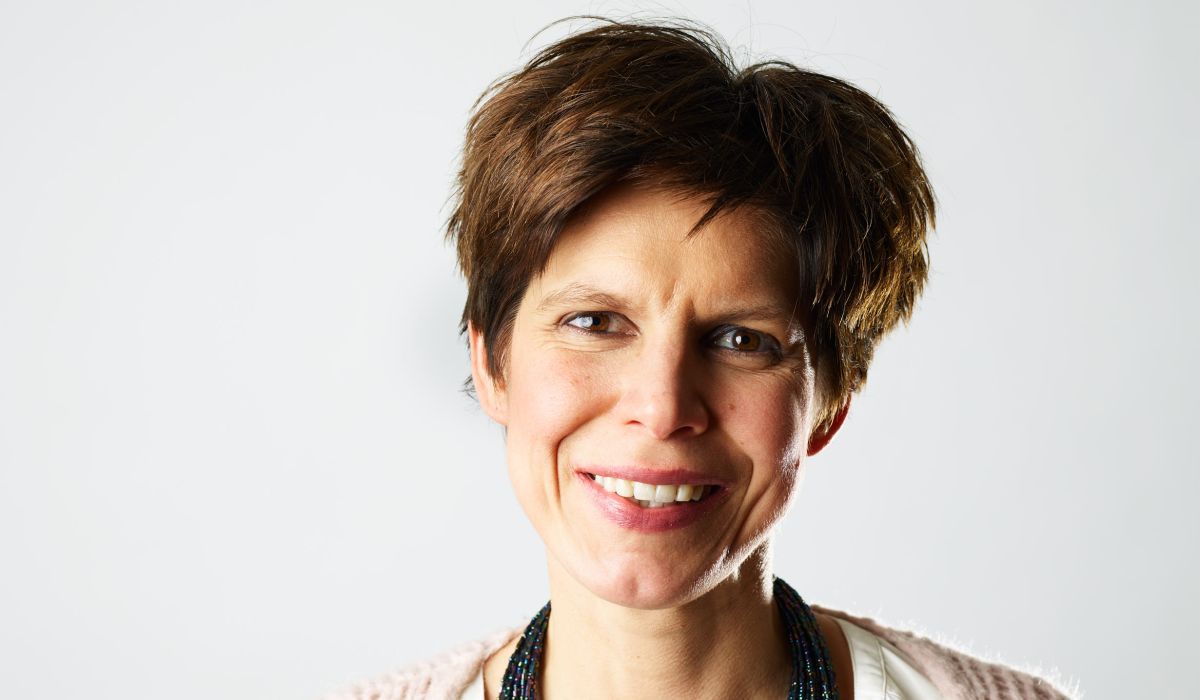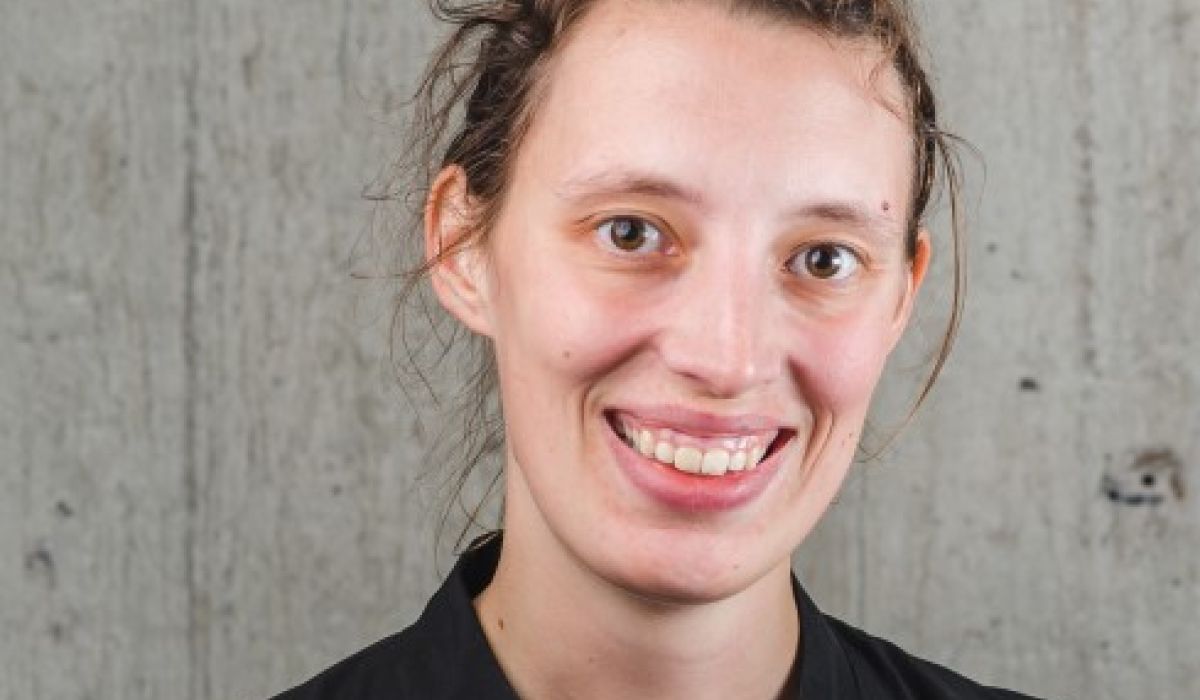
Dashplus on the future of digital care in Belgium
Screen care is the healthcare innovation that is being implemented everywhere. Not only the Netherlands, but also Belgium is on the rise in e-health. The consultancy firm dashplus helps companies in the healthcare sector with innovations such as digital care and is experiencing the advance at close quarters. In a personal interview with dashplus founder Sofie Staelraeve, we find out more about the company and the state of affairs in Belgium. We were also curious to know how the Netherlands compares with Belgian healthcare innovations.
Screen care is the healthcare innovation that is being implemented everywhere. Not only the Netherlands, but also Belgium is on the rise in e-health. The consultancy firm dashplus helps companies in the healthcare sector with innovations such as digital care and is experiencing the advance from close by. In a personal interview with dashplus founder Sofie Staelraeve, we find out more about the company and the state of affairs in Belgium. We were also curious to know how the Netherlands compares with Belgian healthcare innovations.
You are the founder of dashplus. Can you tell us something about the company?
Dashplus is a healthcare innovation consulting company. We help players who want to innovate in this sector define their strategy, go-to-market and stakeholder management. We also blog about various innovative trends in healthcare and have a readership of more than 2,000 people. Our clients are very diverse; from insurers and healthcare providers to small and large private companies in the domain.
I founded dashplus 6 years ago out of a drive to bring innovation in healthcare towards more value-based healthcare. I strongly believe in the need for more collaboration, focus on quality of life and support by digital technology in healthcare. And also in a greater share of prevention and lifestyle medicine. We always work with dashplus on trajectories that bring that closer.
Do you only focus on Belgium or do you also operate in other countries?
We operate mainly in Belgium, but already worked in the Netherlands, Germany and Slovakia. Readers of the dashplus community come from all over Europe.
How is telehealth doing in Belgium?
A temporary covid reimbursement of telehealth is currently in force in Belgium. Since the start of the pandemic, doctors and other healthcare providers are reimbursed for consultations they conduct remotely, via phone or video. For patients, such consultations are currently free.
Belgium plans to decide on a permanent embedding of telehealth or teleconsultations in the public health system. Indeed, the Belgian government decided in June 2021 that the covid scheme should move to a permanent framework. However, we do not know when that will be in place.
I saw you cite France in a blog as a forerunner in telehealth. In what ways is the country demonstrating this?
France, on the one hand, started regional programmes of telemonitoring as early as 2015, in collaboration with private platforms. Teleconsultations, or the digital contact between a doctor and a patient, were part of those programmes.
In 2018, France already decided on a broad framework of reimbursement for video consultations in the country. Any French citizen could speak to a doctor via a video consultation, and each doctor was reimbursed the same as for a physical consultation. France argued that such a consultation could best be part of continuity of care. But was also mindful of the realities in that area. They allowed anyone to use video consultations in areas where there were few doctors or on weekends (OHO service).
Patients who contacted a doctor outside a care pathway and the certain conditions did receive less reimbursement from public insurance for the consultation. France also explicitly envisaged working with video consultations instead of telephone consultations for quality reasons. They additionally stated that it should always be about interaction between a doctor and a patient, with that came a focus on patient-centredness. And they explicitly foresaw the possibility of patient support during the consultation. All points on which I feel they made the right choices from a future perspective.
Since 2021, France has further changed the condition of the 'care pathway' for public reimbursement: all video consultations are fully reimbursed to the patient. On the doctors' side, quality assurance will be built in, though. Thus, doctors can conduct a total of 20% of their practice hours in digital consultations. This is to avoid having doctors who would no longer conduct a physical practice and thus become a kind of 'uber doctor'.
France is a forerunner because they and very consistently commit to telehealth and put the patient at the centre of this. They have an eye for the diversity of people and wishes in society and make telehealth broad and as simple as possible for everyone. They do not start from the perspective of the healthcare provider, but have an eye for the necessary quality in that healthcare provision.
How is the Netherlands doing in terms of screen care compared to Belgium?
In the Netherlands, this has already been implemented much more. This has to do with the purchasing arrangements through health insurers, which often enables more efficient follow-up and scaling up 'remotely'. In Belgium, there is no public funding for medical apps yet and they are reimbursed on a per-act basis. As a result, there is a fear of overconsumption and budgetary problems. Which makes one hesitate to act or decide. But innovation should never start from a fear.... Then you will keep spinning in circles.
Insurers are already starting to reimburse medical apps as additional services, though. So that's a good step.
What can be done to get healthcare institutions in Belgium to start using screen-based care?
- Educate care providers to deal with digital care already during their training. There is still a big 'wall' in the minds and actions of healthcare providers between physical and digital, whereas we need to move towards hybrid care. You can remedy this by familiarising people with e-health already during training. Fortunately, there will now be a first postgraduate e-health degree in Flanders at the Hogeshool West-Vlaanderen (Howest).
- Funding of healthcare institutions is no longer solely linked to the number of FTEs, but also includes an 'innovation' component in the funding that encourages the institution to invest in remote care.
- Equal reimbursement for physical care and digital care. Also for specialists and paramedics, so that they consciously choose either channel to interact with the patient and the patient does not automatically have to travel. That way you get true hybrid care and the right channel is deployed at any time.
Belgium is actually ahead of the Netherlands in a number of ways. Can you say a bit more about that?
The government has rightly invested heavily over the past decade in digitising basic documents such as patient records, electronic prescriptions, the digital safe for exchanging information between healthcare providers and the patient portal mijngezondheid.be. Efforts have also been made to digitise back-office processes in healthcare. Actes are considered acts in Flanders, and so they are not yet digital enough.
She has done this with financial incentives for healthcare providers as well as quality requirements for technology providers.
She has also done this by taking into account the uniqueness of the system. Fortunately, there is a free choice of providers for doctors and healthcare providers, which makes for a certain competitive landscape.
There is a free choice of providers for doctors and healthcare providers.
The coming years will require further efforts on digital education and better patient-centricity. For instance, it is still difficult for patients to access their records and the user experience could be better. All this will have to be done with a link to quality of care.
 English
English  Nederlands
Nederlands  Français
Français  Deutsch
Deutsch  Italiano
Italiano  Polski
Polski  Português
Português  Español
Español  Svenska
Svenska 
